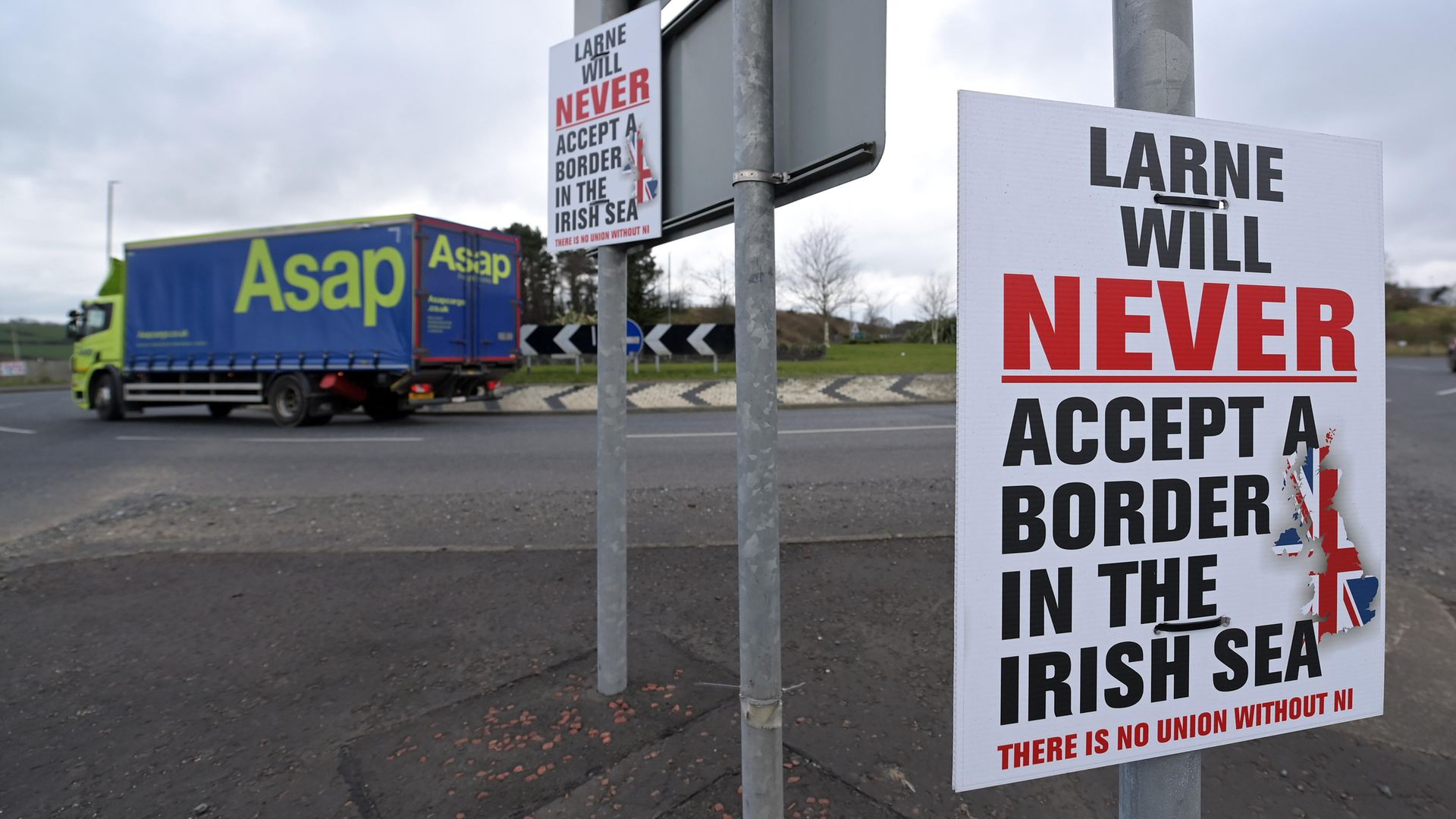
Irish journalist and academic DENNIS KENNEDY on the consequences of a demographic revolution in Northern Ireland
The Northern Ireland Protocol promises to be 21st century Europe’s Schleswig-Holstein Question, the apparently intractable territorial dispute lasting most of the 19th century involving Denmark, Sweden, Prussia, Austria and some others over the two provinces straddling south Denmark and northern Germany.
Lord Palmerston bestowed proverbial status upon it when he asserted that “only three people fully understood the Schleswig-Holstein business –the Prince Consort, who is dead, a German professor who has gone mad, and I, who have forgotten all about it.”
Anyone who has attempted to read the extensive documentation laying out and explaining the Northern Ireland Protocol may feel like emulating any one of the three.
The problem it is meant to solve is in some ways a simple one. A few year’s ago it did not exist. It is entirely the result of Brexit, and if Brexit was reversed tomorrow it would disappear. David Cameron did not plan on losing the referendum and presumably did not give much thought to the implications of having a 300-mile land frontier with the EU, between Northern Ireland and the Irish Republic.
When the problem was raised, Brexiteers dismissed it, arguing that modern high tech would mean no frontier posts or at least no delays at checkpoints. But it has emerged as the most difficult item in the prolonged negotiation, and the protocol agreed to solve it averts checks on the Irish border by keeping Northern Ireland within the European single market, and creating an internal barrier in the UK, the ‘border in the Irish Sea’ between Great Britain and Northern Ireland.
For the Democratic Unionist Party, currently the largest party in the Stormont assembly and holding the post of first minister – in Arlene Foster – this is more than slightly embarrassing. It is an extremely pro-Brexit party and its members at Westminster were needed by the Tories to ensure a majority in the House of Commons.
Northern Ireland as a region voted to stay in the EU in the referendum, and commercial and business sectors in the region were generally pro-EU, and now welcome the Protocol as good for business. Some factions of Unionism dislike it and are now demanding its rejection. Representatives of Loyalist organisations have hinted at violent action against it.
So much for the UK government’s assurance that the Protocol “exists to ensure that the progress made in the 22 years since the Belfast Agreement is secured into the future”.
With Assembly elections due in May 2022 the DUP will be worried about dissent within the broad Unionist family which could mean the DUP loses its place as the biggest party to Sinn Fein, which would automatically give the first minister position to its nominee.
Last week homes all over Northern Ireland received their forms for the UK census taking place this month, possibly concentrating DUP worries about what is looking like the biggest revolution in the region’s history – the demographic one.
When it emerged in 1921 as six counties of Ulster, not nine, to ensure a stable majority for Unionists, the divide was roughly 65/35 percentage Protestants to Catholics. At the last census in 2011 the divide was almost even – Protestants and Catholics each accounted for roughly 40% of the population.
Since then the balance may have tipped; surveys show that at school level Catholics have overtaken Protestants some time ago, meaning that the adult population by now will show the same result. Religion may be a decreasingly accurate way of measuring the Unionist/Nationalist divide but the census form now asks for religion, offering boxes for Roman Catholic and the three main Protestant denominations, and a space to write in ‘other’.
Another question asks what religion, what religious denomination or body were you brought up in, offering the same choices. Other questions ask for country of birth, offering Northern Ireland, England, Scotland, Wales. Rep of Ireland as named options.
Then it wants to know what passport you hold, the only named options being United Kingdom and Ireland. The next question is a bit personal – it asks ‘How would you describe your national identity’ offering six named alternatives – British, Irish, Northern Irish, English, Scottish, Welsh.
The results will begin to become available in June 2022 and should give as accurate a guide to the Unionist/Nationalist political divide as we can have. But the election may have already upset the Unionist apple cart by returning Sinn Fein as the largest party, giving Northern Ireland for first time an Irish Nationalist first minister. That in turn might persuade London to call the referendum promised in the Belfast Agreement on whether or not Ireland stays in the UK or opts to join a united Ireland.
A decision for the latter would have the added attraction that it would, at a stroke, solve the NI Protocol problem.
Dennis Kennedy is a former deputy editor of the Irish Times and one time representative of the European Commission in Northern Ireland
What do you think? Have your say on this and more by emailing letters@theneweuropean.co.uk
Warning: Illegal string offset 'link_id' in /mnt/storage/stage/www/wp-includes/bookmark.php on line 357
Notice: Trying to get property 'link_id' of non-object in /mnt/storage/stage/www/wp-includes/bookmark.php on line 37






